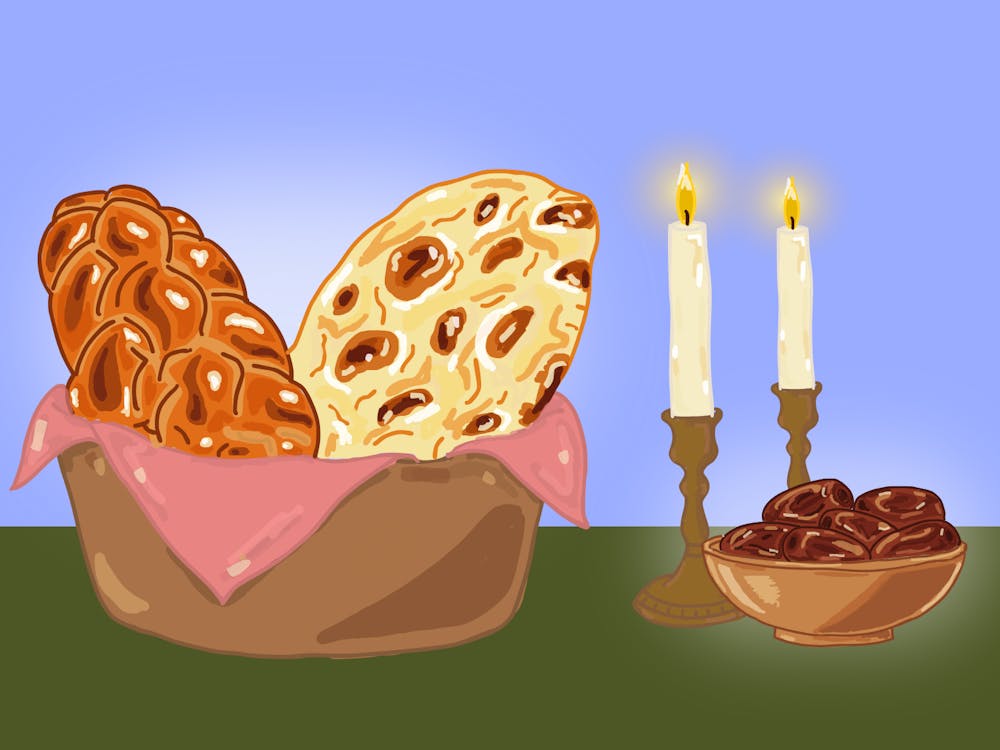In President Bush's State of the Union address last Tuesday night, he focused on bipartisanship, America's role in the world, the economy and energy.
Bush mentioned the need for political cooperation between members of both parties frequently during his address.
Setting the cooperative tone in the beginning, Bush said that in a government consisting of two parties, "there will always be differences and debate ... To confront the great issues before us, we must act in a spirit of good will and respect for one another. And I will do my part."
First-year College student Katie Hickson said she appreciated Bush's emphasis on cooperation.
"I think striving for bipartisanship is a good idea because it not only helps to make things happen, but it also satisfies more people's needs," Hickson said.
Fourth-year College student Towns Agnew said he agrees with the need for bipartisanship, but he has yet to see an increase in cooperation.
"Every president rambles on about bipartisanship, but nothing ever seems to come of it," Agnew said.
President Bush next shifted the subject to America's responsibilities on the international stage.
"The road of isolationism and protectionism may seem broad and inviting, yet it ends in danger and decline," Bush said. "The only way to protect our people, the only way to secure the peace, the only way to control our destiny is by our leadership. So the United States of America will continue to lead."
Although some students said they agreed that the United States should share its wealth and resources, others were concerned about the actual motives behind the aid.
"I think we should share the wealth," second-year College student Liz Freer said. "But I don't think we should try to change views of a culture that's been that way for a long time."
First-year College student Erin Moran had a different speculation.
"I think, in trying to help other people, we're trying to make people more American," Moran said.
Bush also asked Congress to reauthorize the Patriot Act to help America to continue its fight against terrorism.
Hickson said she had some reservations about the Patriot Act but understands its purpose.
"I know the Patriot Act is good for some reasons, but it oversteps its power in other areas," Hickson said. "I think it needs to be reformulated."
In addition to criticism of policies that some believe border on invasion of privacy, Bush has also been faced with the challenge of balancing the budget and reducing the deficit.
In the State of the Union, Bush said he will continue to cut non-security discretionary spending and "reduce or eliminate more than 140 programs that are performing poorly or not fulfilling essential priorities."
Hickson said she was concerned about Bush's vague wording.
"I'd like to know what constitutes President Bush's 'essential priorities,'" Hickson said.
Near the end of Bush's address and after his declaration that "America is addicted to oil," he announced a plan called the "Advanced Energy Initiative." This proposal would aim to increase clean-energy research by 22 percent, make alternative fuels competitive within six years and, by 2025, replace at least 75 percent of America's oil imported from the Middle East.
"I think these are good goals, but the time period is unrealistic," Freer said.
Hickson said that even though Bush's goals show potential, she has not been impressed with the outcomes of Bush's promises before.
"It all sounds like a good idea," Hickson said. "But like all the rest of Bush's ideas, I think it's a lot easier to say them than follow through with them"






